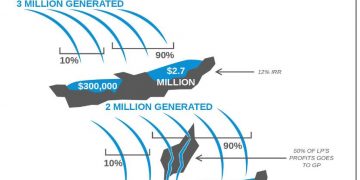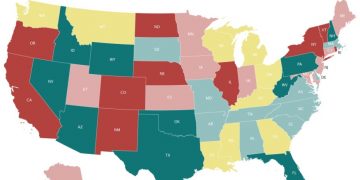Since January 1, 2019, the duty rules for separate from instruments fall under drastically new principles remembered for the Tax Cuts and Jobs Act (TCJA) of 2017. These law changes were to a great extent made because of assessment underreporting, implying that the government forms of beneficiaries of provision showed less pay than the deductible divorce settlement on the government forms of the payer of support.
This article audits the expense law changes in this new climate and how the TCJA of 2017 affected a portion of these arrangements.
Divorce settlement, Dependency, and Child Support
For separation or division arrangements executed later in 2018, divorce settlement is as of now not deductible by the payor companion and is excluded from the pay of the beneficiary. This direction is clear and makes other pre-2019 confusing elements, including what comprises the provision and the assessment treatment of monies paid to outsiders as an intermediary for support, less significant. For pre-2019 separation and partition arrangements, the divorce settlement is deductible to the payor and included in pay to the beneficiary.
The TCJA successfully made the reliance arranging point between companions disputable. From 2018 to 2025, there is no derivation for reliance; starting in 2026, nonetheless, this allowance will become compelling by and by. Consequently, assuming a citizen is going through a separation in 2021 and the kids are youthful, this is a region one might need to address in any arrangement that figures out who gets the reliance allowance in 2026 and then some. Charge law oversees who gets the exclusion, and it’s generally the life partner who has legitimate guardianship; a separation or partition arrangement doesn’t abrogate government charge law. In this manner, an arrangement can unquestionably be made between the companions regarding who takes the reliance exception allowance. Assuming the noncustodial parent gets the derivation per an understanding, the main way the government law permits the noncustodial parent to take the exception is by the custodial parent marking IRS structure 8332, a duplicate of which ought to be given to the noncustodial parent. It is a great practice to illuminate this in arrangements to guarantee the custodial parent has the responsibility, to work with the execution of this archive.
Regardless of whether an arrangement is pre-or post-2019 makes little difference to whether or not kid support is available; it isn’t available, nor is it deductible. Assuming that a pre-2019 arrangement calls for unallocated youngster backing and support, notwithstanding, then, at that point, it is includible in pay in full and deductible to the payor in full. A qualifier to this would be assuming the unallocated sums were decreased by a kid arriving at age 18; by rights, that piece of the unallocated support is truly not unallocated. That part is truly youngster support and ought to be treated as though it isn’t deductible and not available.
Property Settlements
Property settlements are nontaxable occasions. To the degree that property or stock is moved, the getting mate holds the expense premise. At the point of a few separations, it should consider not simply the exchange of the evenhanded honest evaluation (FMV) of the stock, yet its expense premise too. For instance, consider a couple that possesses 2,000 portions of GE stock worth $70,000. The expense premise in those offers differ. Accept 1,000 of those offers have an expense premise of $8, and 1,000 have an expense premise of $30. Additionally accept the understanding requires a split of these resources between the mates. By all accounts, one may just exchange 1,000 offers to the next mate. Expect the spouse moved 1,000 of those offers yet just utilizing the $8 cost premise stock. The accompanying contrasts this methodology and an option wherein the expense premise is similarly parted:
| Scenario 1—Husband Transfers Low Basis Stock | ||
|---|---|---|
| ‘ | Husband | Wife |
| FMV of shares transferred | $35,000 | $35,000 |
| Cost basis of shares transferred | 30,000 | 8,000 |
| Taxable gain upon sale | $5,000 | $27,000 |
| Scenario 2—Husband Transfers Shares Equal Cost Basis | ||
|---|---|---|
| Husband | Wife | |
| FMV of shares transferred | $35,000 | $35,000 |
| Cost basis of shares transferred | 19,000 | 19,000 |
| Taxable gain upon sale | $16,000 | $16,000 |
As is outlined above, the exchange of cost premise is similarly just about as significant as the FMV. Counselors ought to painstakingly survey property settlements with a lawyer to guarantee reasonableness happens inside the dissemination of resources.
Offer of Residence
Under IRC segment 121, a couple selling their home can for the most part prohibit up to $500,000 of gain from the offer of the main living place. Usually, one companion moves out and the other holds the house, regardless of whether the withdrawing mate actually possesses title on the home. In such a case, language ought to be remembered for the consent to ensure the leaving companion who moves out to prohibit $250,000 of the increase.
Business Activities
These are frequently the most troublesome resources for addressing in a separation. Frequently, one life partner is underestimating the financial matter, while the other companion is exaggerating the interest. Ordinarily, the mate who is dynamic in the business will hold possession and the companion who isn’t dynamic will be repaid by dividing different resources. This can be a confounded cycle; for instance, the exchange of organization interests incorporates the decrease of response obligation and inherent increases that can trigger unfavorable expense results.
Different Issues
The parting of resources in a separation regularly includes an annuity, 401(k), or IRA. A certified homegrown relations request (QDRO) gives a companion an option to partake in the certified idea of the record (which means charge conceded, as though the mate was the proprietor). Without a QDRO, this advantage can’t be gotten.
A typical region to audit while counseling more well-off customers is any “youngster charge” issue. To put it plainly, the youngster charge happens when a kid’s venture pay is charged at a parent’s higher rate. Life partners need to share data to ascertain and settle the youngster’s expense or plan ahead, if conceivable, to limit the effect.
An exceptionally normal component in separate from cases is the need to totally rebuild the domain arranging and will. Guardianship matters, new property proprietorship, legal administrator changes, and disaster protection recipients are normal things that adjust to separation.
Start toward the Beginning
There are many duty elements to consider in a separation; this article has just addressed probably the most widely recognized ones. The initial step is a finished outline of the customer’s resources, liabilities, and pay. CPAs are not lawyers, and family law lawyers don’t rehearse charges. Yet, by cooperating, experts can be successful in guaranteeing that a positive result for all gatherings is accomplished.


















































